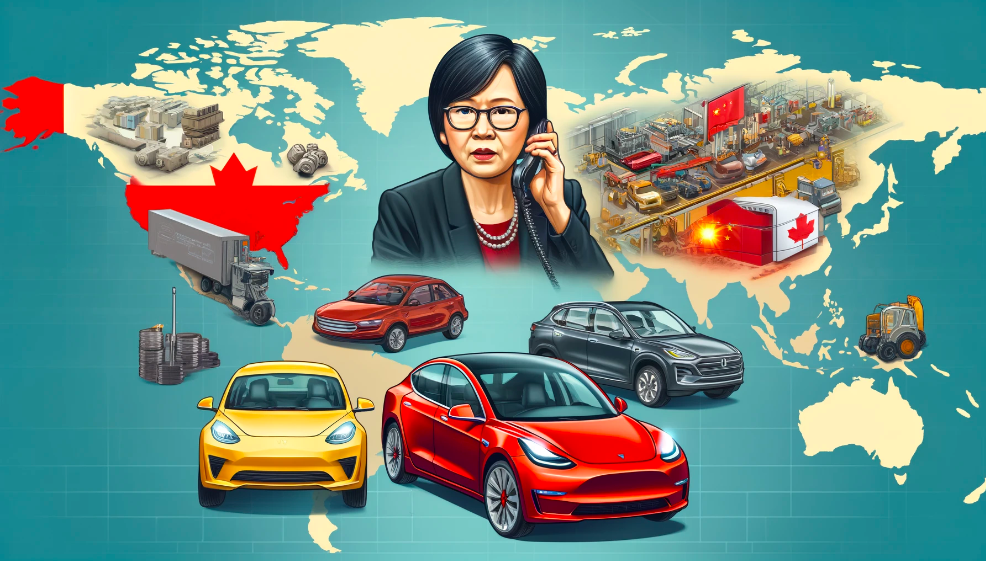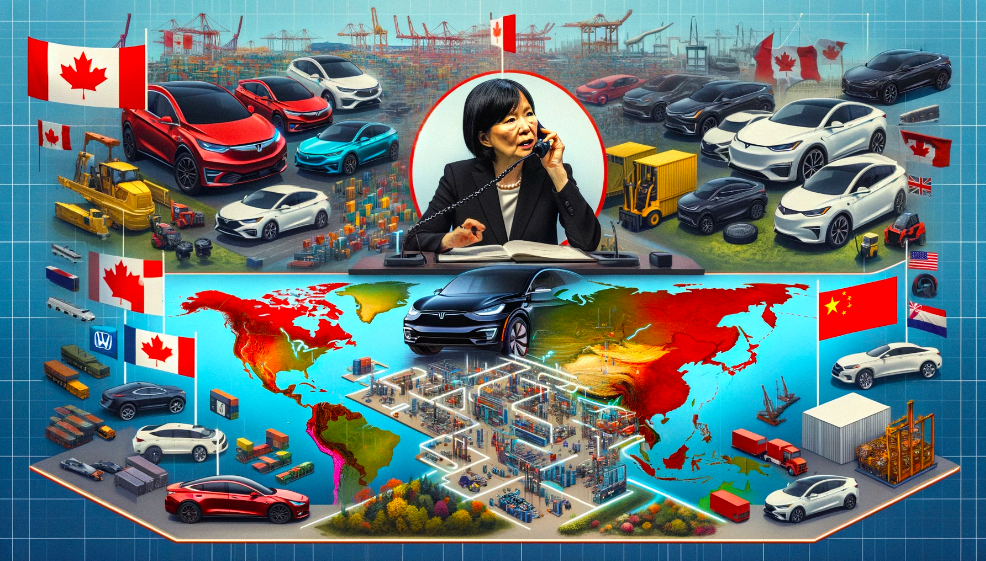- Canada is considering raising tariffs on Chinese-made electric vehicles following the U.S. decision to implement significant new tariffs on Chinese imports.
- Trade Minister Mary Ng emphasized Canada’s priority on domestic EV production, citing agreements with Honda and Volkswagen to manufacture EVs and components in Ontario.
- Although Chinese EVs currently hold a small market share in Canada, imports have surged, notably with Tesla’s Model Y from Shanghai increasing fivefold last year.
Canada is currently evaluating the need to increase tariffs on Chinese-made electric vehicles, following the U.S. announcement of significant new tariffs on these imports, Trade Minister Mary Ng stated.
“We are examining this closely and maintaining an open dialogue with our American partners,” Ng said during a phone interview from Peru, where she is attending the Asia-Pacific Economic Cooperation forum.

The Biden administration has introduced extensive new tariffs against China, targeting products such as semiconductors, solar cells, and electric vehicles. The new U.S. tariff on Chinese-made electric vehicles will rise to 102.5%, up from the current 27.5%, and will take effect this year.
Currently, Canada imposes a modest 6% tariff on Chinese vehicles. When asked if Canada might align its tariffs with those of the U.S., Ng confirmed that the government is in discussions with U.S. officials and is seriously considering this policy adjustment.
Ng emphasized that Canada’s primary focus is on boosting domestic production of electric vehicles. She highlighted agreements made by Prime Minister Justin Trudeau’s government with automakers like Honda and Volkswagen to manufacture electric vehicles, batteries, and components in Ontario.

Canada’s auto sector is closely integrated with the U.S. industry, with parts and finished vehicles frequently crossing the border between Ontario and key manufacturing states like Michigan and Ohio.
While Chinese manufacturers currently hold a small share of the Canadian auto market, there has been a notable increase in imports of Chinese-made Tesla models from Shanghai. The number of cars arriving from China at the port of Vancouver surged more than fivefold last year, reaching approximately 44,400, as Tesla began shipping Model Y vehicles from its Shanghai facility.
Marc has been involved in the Stock Market Media Industry for the last +5 years. After obtaining a college degree in engineering in France, he moved to Canada, where he created Money,eh?, a personal finance website.

